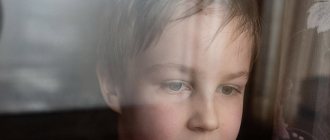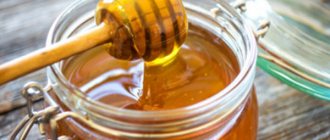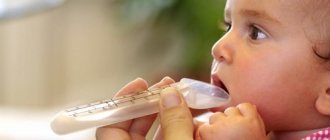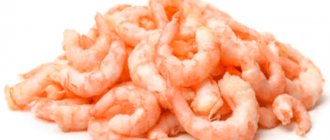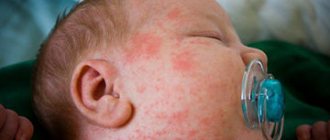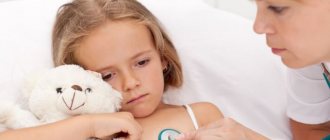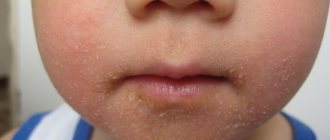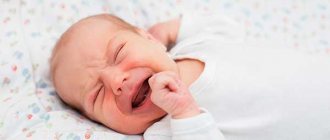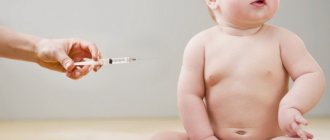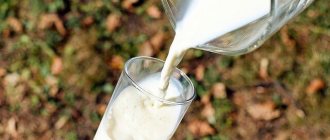Many parents are faced with frequent infectious diseases in children, as well as their chronicity, such as tonsillitis, sinusitis, etc. After suffering acute respiratory viral infections, as well as during the off-season, with an increased likelihood of getting sick, as well as in contact with sick people, the question arises of how to help a child recover faster or protect him from infection, and choose an effective drug to increase the child’s immunity. Not everything that is suitable at 2 years old is suitable for use after 3 years.
Although in many cases the role of immunomodulators and adaptogens is difficult to overestimate, making a choice with all the variety of such agents on the pharmaceutical market is not easy. Drugs that have a regulating effect on the immune system are not vitamins, and are taken as prescribed by a doctor. In some cases, taking immunomodulators can even be harmful to health and contribute to the development of autoimmune diseases in subsequent years. Therefore, it is thoughtless to purchase drugs to increase immunity and resistance for children, that is, you should not experiment on a child.
Synthetic drugs to enhance immunity
What to give a child to boost immunity? There is no “magic” pill that can permanently rid a child of all diseases. Yes, she is not needed. Human immunity itself is a “mechanism” that is reliable and stable. You just need to support him.
Immunomodulators
These remedies can restore immunity (for preventive purposes) or activate it (in case of illness).
Immunomodulators include:
- Polyoxidonium;
- Levamisole;
- Lycopid;
- Prodigiozan.
They use drugs obtained from the thymus gland, a special gland that produces antibodies and produces T-lymphocytes - “killer cells” of foreign antigens, among them:
- Timalin;
- Taktivin;
- Thymogen.
Polyvalent drugs
Protect the body from a large number of ARVI pathogens:
- Broncho-Munal;
- Ribomunil, which combines the properties of a vaccine and an immunostimulant (tablets);
- IRS-19 (nasal spray).
To obtain the desired effect, the listed drugs should be used prolonged, up to six months, in intermittent courses, which will require diligence and patience from parents.
Interferons
Interferons are prescribed when microbes circulate in the child’s body for a long time, among them:
- Viferon;
- Alfaferon;
- Roferon.
Or drugs that induce the formation of interferons:
- Ridostin;
- Cycloferon;
- Poludan.
Probiotics
The intestinal microflora has a strong influence on the body's defenses. Frequent use of antibiotics kills not only pathogenic but also beneficial microorganisms.
Medicines containing live bacteria (probiotics) help restore normal microflora, and therefore strengthen the immune system:
- Linux;
- Hilak Forte;
- Bifiform.
Linux for children
The form of release of drugs can be different: powder, liquid, tablets.
Speaking about strengthening the immune system, pediatricians will definitely recommend taking a course of vaccination. It is carried out for children from their first birthday and ends at 14 years old. The purpose of vaccinations is to “teach” the body to recognize foreign pathogens and destroy them.
Difference between immunomodulators and immunostimulants?
Immunomodulators are a group of pharmaceuticals that help modulate and stimulate immune responses.
But the category of immunostimulants includes those drugs that increase the intensity of the production of additional immune bodies and increase the body’s response to foreign molecules.
In traditional medicine, there is a list of the most popular immunomodulators that have minimal negative effects on the patient’s body.
Scroll:
- Sorbents. These medications help cleanse internal organs and blood vessels of toxins, which improves the functioning of all systems and the overall well-being of the patient.
- Mineral and vitamin complexes. Drugs in this category supply the body with substances that help it produce the antibodies necessary to fight various diseases.
Immunostimulants specifically affect immune processes.
These drugs act on the body as follows:
- They form immune bodies in the body that perform the functions of acquired immunity, helping the body cope with pathogens.
- They paralyze the dynamism of the virus molecules.
- Immunostimulants directly affect healthy cells of the body, making them impermeable to infections.
If you choose the wrong drug, there is a high risk of developing adverse reactions. For this reason, only a pediatrician can prescribe a safe drug.
Self-medication is fraught with a rapid deterioration in the child’s well-being.
Immunomodulators and immunostimulants help cope with the disease at the very beginning of its development. But the specificity of the use of these drugs has its own differences.
Dietary supplements and homeopathic remedies
With frequent illnesses, the baby’s body experiences an increased consumption of vitamins and minerals.
The food consumed cannot compensate for the deficiency of nutrients, therefore vitamin therapy is an obligatory part of immunorestorative measures, including taking:
- multivitamin complexes of domestic and foreign production. Pikovit (tablets, syrup), containing 9 essential minerals and vitamins. Alphabet Kindergarten (chewable tablets). Kinder Biovital (gel, bear-shaped chewing candies). Vitrum Kids (10 minerals + 12 vitamins), etc.;
- biostimulating agents . The nonspecific immunity of a child can be increased by the following methods: Eleutherococcus, Immunal, Leuzea, Ginseng, Apilactose and Apilikvirit (bee products), Linetol (a product obtained from flaxseed oil);
- homeopathic medicines . The following products cope well with the task of strengthening the resistance of the child’s body: Oscillococcinum, Influcid, Silicea, etc.
It should be understood that dietary supplements are not medicines; they only have a supporting effect. Therefore, their use is advisable in combination with the main treatment. Before buying vitamin complexes for your baby at the pharmacy, you should consult your pediatrician. Some drugs have contraindications and are not prescribed to young children.
What are immunomodulators, the mechanism of action on the children's body
Pediatricians prescribe immunomodulators for children when, during examination of a child, enlarged lymph nodes are felt in the neck, armpits and groin. These medications come in various forms.
In pharmacies you can purchase suspensions, tablets, suppositories, nasal sprays and products for external use. The main task of immunomodulators is to increase the protective functions of the immune system. The drugs have a powerful antiviral effect and strengthen the immune system at the humoral and cellular level.
Immunomodulators can be prescribed to children to prevent the development of complications during seasonal respiratory diseases, thanks to which the growing body copes with acute respiratory viral infections and acute respiratory infections much faster.
Healthy food
Proper food is one of the conditions for creating strong immunity. The child’s diet must correspond to the age-related nutritional needs of the body.
The main source of protein is fish and meat. These products promote the production of leukocytes - cells whose main task is to protect the body from pathogenic agents.
Vitamins A and C, PP, group B, necessary to strengthen the immune system, are found in fresh vegetables and fruits. The entire line of fermented milk products - yoghurts, kefir, fermented baked milk also “participates” in strengthening the body’s resistance due to its beneficial composition, including bifidobacteria and lactobacilli.
When choosing yogurt in a store, you should give preference to the regular rather than the flavored product. To make it tastier, you can add pieces of fruit to the yogurt.
The baby's menu must necessarily contain immune-strengthening fruits and vegetables: beans and broccoli, apples and carrots, strawberries, oranges, cabbage, sweet potatoes, melons.
A huge amount of vitamins and minerals are found in fresh fruits and vegetables
It is advisable to feed your child raw, organic food with the addition of freshly squeezed juices and fruit smoothies. Nuts and seeds, whole grain products - they are all rich in vitamins A and B, C and E, zinc, selenium, fatty amino acids and should also be included in the children's diet.
It is important to give your child enough water, replacing sweet drinks and soda, which contain a lot of sugar, which can suppress the immune system and cause dysbiosis.
Causes of decreased immunity in children
The child’s immune status is disrupted for various reasons, and heredity plays a significant role: if the parents are in poor health , the baby will be born with weak immunity.
Both birth trauma and complications during pregnancy . Besides these reasons, the most common are:
- breastfeeding for less than six months;
- vitamin deficiency;
- introduction of complementary foods, in which the child experiences either a lack or an excess of nutrients;
- improper functioning of the gastrointestinal tract;
- medication overdose;
- serious psychological trauma;
- living in a poor area from an environmental point of view.
Note! There is no point in strengthening children's immunity from case to case. This needs to be done constantly. And especially for those parents who themselves are not blessed with good health.
Folk remedies
Traditional methods of strengthening the immune system are simple, effective and safe.
Onion and garlic
Children often refuse this healthy “couple”: they are confused by the taste and smell of vegetables.
Therefore, parents should use a trick: finely chop green onions and add them to foods familiar to the child, and dissolve a crushed clove of garlic in the soup: while the broth cools, the smell and bitterness will disappear. Garlic can be used to make a useful “talisman”.
To do this, take a plastic container from a toy, for example, from a Kinder Surprise, pierce it in several places with an awl, and attach a ribbon pendant.
Then you need to put a chopped clove of garlic in a box and hang the “pendant” around the baby’s neck. To ensure that the child wears such a device with pleasure, the box can be designed in the form of a bee, fish or funny man.
Honey and lemon
If a child is not allergic to bee products, then honey is an excellent way to maintain immunity. Buckwheat and linden varieties are especially useful.
Honey should be added to tea or water, 1 tsp. per day, it is an excellent substitute for sugar. Your baby will love a real immune cocktail - a mixture of honey and lemon juice, diluted in 100 g of water.
Berries and herbs
Decoctions of chamomile and linden blossom or rose hips will help strengthen the body's resistance. You can give your baby herbal drinks by sweetening them with honey (½ tbsp).
Cranberry improves immunity best . You can freeze it and then add a small amount of berries to warm black tea, after grinding it with sugar or honey. It is better to give this drink to a child in the first half of the day, during periods of colds and viruses.
Fish fat
This immune remedy has been known for a long time. Its benefit lies in polyunsaturated fatty acids, which are essential for health.
The most important among them is omega-3, which the body cannot produce on its own, and its deficiency has a detrimental effect on the immune system. Previously, fish oil was given to children in kindergartens 1 tsp, and its taste was unpleasant due to the poor quality of purification.
Today this medicine is produced in the form of capsules that you simply need to swallow. But even in liquid form, the product does not have an unpleasant, specific taste or odor, since it undergoes a multi-stage purification system.
Fish oil is a godsend for children who are often sick. But it is important to remember about the dosage: an excess of this useful dietary supplement is just as dangerous as its deficiency.
So, the question is: is it necessary to strengthen the immunity of the girl Masha?
Answer: It is in principle impossible to increase or strengthen the immunity of a 6-month-old child, because there is simply no immunity as such, there is nothing to strengthen.
I’ll give you a small piece from my lecture for third-year students. In childhood, from birth to 16 years, there are conventionally 5 (five) critical periods of development of the immune system. This is done because at certain periods of a child’s life the immune system experiences such strong changes, comparable, perhaps, to the stress that the child’s body experiences at birth.
The first critical period of the immune system is understandably the first month of a child’s life. True, if pregnancy and childbirth proceeded without serious pathology, then just during this period the child’s body is quite reliably protected from infections by maternal immunity, and this “freebie” continues until about 5–6 months, when innate maternal antibodies disintegrate into molecules from old age, and the child is left alone with the sources of infection surrounding him, and if there are two sources, as in this example, and this one also has a tail, then as you remember, it was at the age of 5.5 months that I had the good fortune to meet the girl Masha.
The next critical period for immunity is the second year of a child’s life, mainly due to the fact that the child begins to walk and greatly expands his infectious contacts.
But the fourth critical period usually occurs at the age of 4–5 years, when, firstly, the composition of the child’s leukocyte blood formula changes greatly, and secondly, he begins to attend kindergarten (nowadays, many children plunge into a group for the first time after three years), and in the third - at the age of 4 - 5 years there is a peak in the development of adenoids - those very lymphoid glands that are located retronasally (that is, behind the nasal choanae) and, with their strong increase, lead to the appearance of snoring, congestion of the nasal passages and night cough.
And finally, it is necessary to mention the fifth crisis period for the child’s immune system - this is adolescence, which is caused by a sharp rise in male sex hormones in children of both sexes, which externally manifests itself as profuse acne on the face of adolescents and a frequent, sudden decrease in immunity after suffering on the legs , say, sore throat or pneumonia (you can’t skip school - oh-oh-oh-oh, you can’t, the Unified State Exam is on the nose!).
So, parents need to understand one thing: it is impossible to strengthen the child’s immunity with the help of chemotherapy, you can only harm him if you take some drugs without understanding and without proper control from an allergist-immunologist.
The best way to strengthen the immune system is a daily routine, proper nutrition and vitamins. That’s it, here are the three pillars on which the child’s immunity rests.
Regarding vitamins, there is now a strange trend among some pediatricians, not to prescribe vitamin D to a child, especially when he is breastfed?! I’m not even saying that this “makar” can lead to rickets (cavalryman’s legs, occipital protuberances, sunken chest, etc.), but not only the growing musculoskeletal system of the child suffers from a lack of vitamin D, but also including the developing immune system. According to modern scientific data, vitamin D in a preventive dosage (if everything is normal) should be given to children under 3 years of age at least.
By the way, about folk remedies for strengthening the immune system: personally, I am completely in favor, the main thing is not to overdo it. Still, the herbal raw materials that usually form the basis of such recipes can also be 100% unsafe, so even folk remedies should be prescribed by a specialist doctor who has additional training in herbal medicine (herbal treatment).
Regarding homeopathy, which is now fashionable: I repent, I’m a sinner, sometimes I prescribe, but only because of adherence to the Hippocratic commandment, do no harm, when I see that the child does not need any immunomodulators at all, but the parents really insist, and by the way, in such cases it really helps, this homeopathy, but if it’s something serious, I don’t recommend it.
From folk remedies - they perfectly strengthen the immune system: sea buckthorn oil or syrup from fresh frozen berries, infusion of dried rose hips: 5 grams of rose hips + 5 grams of dried rowan berries, pour 200 ml of boiling water and leave for 2 hours, strain, dilute 1 to 1 with water, add sugar syrup to taste. But the first experience should be very careful: no more than 2.0 ml at a time for the first 2 - 3 times.
How to properly harden a child?
Hardening a child is a simple, reliable, effective, although not quick, way to increase immunity.
Resistance to diseases is formed as a result of daily training of the body with basic activities:
- healthy household microclimate . The baby's room should be clean. Ventilation and wet cleaning should be carried out regularly. It is important to maintain an optimal microclimate in the child’s room - 18-20°C during the day and 16-18°C at night. Comfortable humidity - 50-70%. Dry air turns nasal mucus into hard crusts, making breathing difficult and making it easier for germs and viruses to enter the body. It is useful to rinse your nose with salt water. This will moisturize the mucous membrane and strengthen local immunity. It’s easy to prepare a saline solution: just stir ½ tsp. salt in a glass of water. Pharmacies sell its finished form in the form of a spray or drops;
- hardening _ Starting from the age of two, the child is shown active water, solar and air procedures. Gargling with cool water, a contrast shower, dousing and rubbing - these simple manipulations have a powerful hardening effect. The water temperature for dousing in the first days should be +33-35°C. Every week it should be reduced by 1-2 degrees, bringing it to +18-19°C. A great way to strengthen the body's resistance is to visit the pool. The temperature difference trains blood vessels and activates blood circulation;
- walks and games in the fresh air . You need to keep your baby active: the more time he spends outside, the better. An exception may be bad weather - frost (below 20 ° C) or heavy rain. If a child spends little time on the street, you should make sure that he goes to school or to a club, if possible, on foot;
- sport . It’s good if a child attends a sports section. But regular daily morning exercises may be enough to avoid getting sick. The main condition is regularity of classes. If a child refuses physical education in the morning, parents should set an example - do exercises together;
- correct daily routine . It is necessary to ensure that the child does not become overtired. An intensive school program, attending clubs, extra classes with a tutor - all this is tiring and can cause stress. If the child does not have 1-1.5 hours left for a walk, it is worth reviewing the daily routine. Chronic lack of sleep also worsens health, weakening the immune system.
The power of hardening lies in complex activities: walks must be combined with proper nutrition and proper rest. If you practice contrast douches, but spend all the time in a stuffy room, the positive effect will not occur.
When are drugs of local and general action prescribed?
Immunomodulators for complex drug treatment of children can be not only local, but also of a general principle of action. In the first case, the drugs show their effectiveness only in the area affected by the active substance included in the composition.
For example, these could be medications that are intended to treat the throat. But general-action drugs have a positive effect on the entire body at once, which is extremely important for effectively combating viral infections.
Contraindications
Immunomodulators for children are not always safe.
Drugs for restoring the protective functions of the immune system have contraindications for use:
- Chronic pathologies of the kidneys and liver.
- Hypersensitivity to the components of the drug.
- Urolithiasis disease.
- Serious disorders of the central nervous system (for example, epilepsy).
- Chronic pathologies of the cardiovascular system.
In the absence of contraindications, immunomodulators are often included in complex drug therapy when it is necessary to achieve the maximum therapeutic effect in the fight against viral or bacterial diseases.
In this case, drugs for immunity are prescribed along with antifungal agents, antibiotics, and antiviral medications.
Rating of the best products for children under 3 years old
Immunomodulators for children differ from each other not only in their composition and possible side reactions, but also in the principle of their effect on the child’s body.
When choosing a safe drug, the attending physician must take into account whether the small patient has concomitant pathologies that, under the influence of a drug to enhance immunity, can provoke complications.
That is why pediatricians have compiled a rating of effective immunomodulators that can be prescribed to children under 3 years of age.
Anaferon for children
This drug contains affinity-purified antibodies to human interferon gamma. Among the auxiliary components are magnesium stearate and lactose monohydrate. Anaferon for children is produced in the form of tablets for sublingual use.
| Indications for use | Contraindications |
| Drug therapy for viral and bacterial infections | Hypersensitivity of the body to the components of the drug |
| Complex treatment of secondary immunodeficiency conditions of various origins | Chronic pathologies of the liver, kidneys |
| Prevention of influenza, ARVI | Stomach and duodenal ulcers |
| Complex treatment of labile and genital herpes | |
| Prevention of the development of viral infections that can be provoked by calicivirus, tick-borne encephalitis, enterovirus |
Treatment should begin immediately after the first signs of the disease are noticed. For the first 2 hours, the child should be given 1 tablet every 30 minutes. After this, the child should take 3 more tablets, but every 4 hours.
From the second day of drug treatment, you should use 1 tablet in the morning, lunch and evening. The duration of the therapeutic course is calculated by the attending physician on an individual basis.
Viferon
The drug has a pronounced antiproliferative, antiviral and immunomodulatory effect.
Viferon is recommended for the treatment of the following diseases:
- Flu, acute respiratory viral infections, acute respiratory infections.
- Diseases of infectious and inflammatory nature.
- Viral hepatitis B, C, D.
The drug is contraindicated if the body is hypersensitive to interferon alpha-2b. Viferon rectal suppositories for the treatment of children under 6 months are recommended to be used in a dosage of 300,000 to 400,000 IU per day.
To treat a child from 6 to 12 months, the dosage of the drug should be increased to 500,000 IU per day. The treatment regimen for older children is determined by the pediatrician on an individual basis.
Aflubin
This drug helps achieve anti-inflammatory, immunomodulatory and antipyretic effects. Aflubin is recommended for the treatment and prevention of respiratory diseases and influenza.
The medicine also helps to cope with allergic rhinitis, eustachitis, sinusitis and pharyngitis. Aflubin should not be used to treat children under 1 year of age. The drug is also contraindicated in case of hypothyroidism and hypersensitivity of the body to the components of the drug.
To treat children over 1 year old, you need to use 5 drops of Aflubin from 3 to 8 times a day for 3 days. After this, the drug is given to the child 5 drops in the morning, lunch and evening. The therapeutic course lasts 1-4 weeks.
Laferobion
The drug is characterized by antitumor, immunomodulatory, and antiviral principles of action. Laferobion does not have a toxic effect on the child's body.
Indications for use:
- Pneumonia.
- ARVI.
- Meningitis.
- Sepsis.
- Acute hepatitis C.
- Flu.
- Glomerulonephritis and pyelonephritis.
- Intestinal dysbiosis.
Laferobion is prohibited for use in cases of autoimmune hepatitis, creatinine clearance less than 50 ml/min, and hemoglobinopathy. For children under 3 years of age, the drug in the form of suppositories is prescribed at a dosage of 150,000 IU. Candles should be used 1 pc. in the morning and in the evening. Duration of treatment – 5 days.
IRS 19
This drug is prescribed to children from 3 months for the prevention and treatment of chronic diseases of the upper respiratory tract and bronchi. IRS 19 helps restore local immunity after recent flu or other viral infections.
The drug can be prescribed during the preparation of a child for planned surgical intervention on the ENT organs. Among the contraindications for use, one can highlight only hypersensitivity of the body to the components of the drug, as well as a history of autoimmune diseases.
The dosage and frequency of use of the drug are determined by the attending physician individually, since everything depends on the age of the child, his condition and the form of the diagnosed disease.
Ribomunil
The drug Ribomunil is recommended to be used to effectively combat sluggish, recurrent infectious diseases.
The drug can be included in complex drug therapy for pathologies that affect the ENT organs (for example, tonsillitis, rhinitis, sinusitis, otitis media, pharyngitis, laryngitis).
It is not recommended to use Ribomunil for autoimmune diseases, as this is fraught with a rapid deterioration in the child’s well-being.
It is recommended to give the child 1 tablet in a dosage of 0.25 mg in the morning, lunch and evening. The drug in the form of granules must be dissolved in 50 ml of warm water without gases before use.
The duration of the therapeutic course is determined individually, since everything depends on the form of the diagnosed disease. If Ribomunil is prescribed to an infant, then treatment should be supervised by a healthcare professional as the drug may cause breathing problems.
Groprinosin
This drug is used in pediatrics as an antiviral and immunostimulating agent.
Groprinosin is intended for the treatment of the following diseases:
- Infectious diseases: measles, influenza, parainfluenza, acute respiratory diseases, mumps.
- Pathologies caused by Herpes simplex viruses.
- Acute diseases of the genitourinary system and respiratory tract.
Groprinosin is not prescribed for urolithiasis, hypersensitivity of the body to the components of the drug and arrhythmia.
The dosage of the drug is calculated based on the following formula: 50 mg/kg body weight. The received dose of medication should be divided into 3-4 doses. The minimum course of treatment should last 10 days.
Grippferon
When used correctly, the drug helps achieve immunomodulatory, anti-inflammatory and antiviral effects. Grippferon is intended for the prevention and treatment of influenza, as well as acute respiratory infections of a viral nature.
The drug should not be used if the body is hypersensitive to interferon-based medications, as well as with severe allergic diseases.
Grippferon drops are recommended to be instilled 2 drops into each nasal passage 3-4 times a day. The medicine in the form of a spray is administered 2 doses into the nasal passages 3 times a day. The maximum daily dose is 8000 IU. The duration of treatment is determined by the pediatrician individually.
Derinat
The drug Derinat is prescribed for acute respiratory infections, ARVI, purulent-inflammatory and degenerative ophthalmological diseases, as well as for inflammatory pathologies of the mucous membranes of the oral cavity. The only contraindication for use is the body's hypersensitivity to the components of the drug.
The drug in the form of a solution for infusion is recommended to be used once a day on the basis that for each year of life you need to take 0.5 ml of the drug. Derinat nasal drops should be instilled 3-4 times a day, 2-3 drops into each nasal passage. In each case, the duration of treatment is determined individually.
A properly selected immunomodulator helps strengthen the immune system, thereby preventing the development of infectious diseases. Herbal medicines are more often prescribed for children.
But modern pharmacology proves that safe immunomodulators can be synthesized artificially. Many drugs help increase the activity of macrophages and leukocytes, on which 95% of the effectiveness of fighting infections depends.
Indications for use
More than 85% of preschool children suffer from colds up to 8 times a year. If the child does not need antibiotics and feels well, then there is no need to use immunomodulators.
Pediatricians prescribe medications to enhance the protective functions of the immune system in the following cases:
- The child periodically experiences dysbacteriosis, diarrhea, and flatulence.
- Respiratory diseases occur more than 8 times a year.
- There are signs of an enlarged spleen.
- Enlarged lymph nodes.
- The child constantly feels unwell, has pale skin, apathy, and has difficulties with learning.
- Chronic allergic diseases.
- The child has been diagnosed with influenza, but the body temperature is not elevated.
Only a pediatrician can determine the advisability of using immunomodulators for a child under 3 years of age.
After examining the patient and studying the results of laboratory tests, the doctor can determine whether the patient has an immunodeficiency. The effectiveness of immunomodulators is indispensable for viral diseases. For example, measles, herpes, meningitis, pneumonia.
Review of the best immunomodulators for children under 3 years of age
The list of effective medications for the treatment and prevention of influenza, bronchitis and sore throat includes immunomodulators that allow you to control the state of not only local, but also general immunity.
Most often, pediatricians prescribe drugs for the production of interferon, as well as medications of microbial origin. Depending on the location and type of infection, systemic or local medications can be used.
Synthetic immunomodulators
The protective functions of the immune system are positively influenced by the drugs Levamisole, Dibazol and Bemitil. The use of these drugs helps the body cope with various infectious diseases, as well as recover from a long illness.
Synthetic immunomodulators are prescribed to children in rare situations. A safe treatment regimen is drawn up by the attending physician on an individual basis, since there is a risk of adverse reactions.
Endogenous immunomodulators
This category includes those medications that have a positive effect on the functioning of individual internal organs of the child. Endogenous immunomodulators include drugs from the placenta, thymus, and bone marrow.
These drugs affect blood composition, which increases the concentration of interferons and immunocompetent cells. You can achieve the maximum therapeutic effect with the help of the drugs Timalin and Imunofan.
Interferons
Preparations based on interferons have a stimulating effect on the immune system and increase the body’s nonspecific defense. Such medications help protect the growing body from bacterial, viral and fungal diseases.
The effectiveness of the drugs is due to the presence of synthesized proteins in their composition.
Interferons are used in traditional medicine not only for treatment, but also to prevent the development of infectious diseases. The following drugs are safe for children under 3 years of age: Grippferon, Genferon, Kipferon, Arbidol.
Preparations of microbial origin
This category includes medications that affect cellular immunity, activating the acquired and innate protective functions of the body. After the first use, the drug activates the work of immune cells.
Thanks to this, the body's resistance to pathogens of infectious diseases increases. Preparations of microbial origin help to get rid of pathogenic pathogens in a short period of time.
The following medications are safe for children under 3 years of age:
- Pyrogenal.
- Lycopid.
- Imudon.
Plant adaptogens
Natural immunomodulators are in high demand, as there is an opinion that plant-based products are safer than synthetic substances.
But this statement is erroneous. Many natural medicines are contraindicated for children under 3 years of age, as they can provoke an allergic reaction. The safest drugs are Eleutherococcus and Echinacea.
The benefits and harms of immunomodulators
A properly selected immunomodulator helps to significantly accelerate the production of interferon, as well as increase its concentration in the body. Immune medications can be used to prevent the development of complications that would require antibiotics.
An immunomodulator used for prevention helps to avoid the development of the disease even in close contact with an infected person.
Among the disadvantages of immunomodulators is their unproven effectiveness. Some medications contain antigens, which, after entering the child’s body, activate the enhanced functioning of all systems and internal organs.
These properties of the drug distract the body from the main enemy - viral infection. For this reason, immunomodulators are better used to prevent the development of the disease, rather than to treat acute diseases. Many drugs for immunity increase the concentration of leukocytes, lymphocytes, and monocytes.
Immunomodulators force the body to fight infections, but the effect of the medications ends at some point, which is why the child’s weakened body is susceptible to infection by pathogens with a 75% probability.
For this reason, repeated use of the same immune drug is ineffective.
